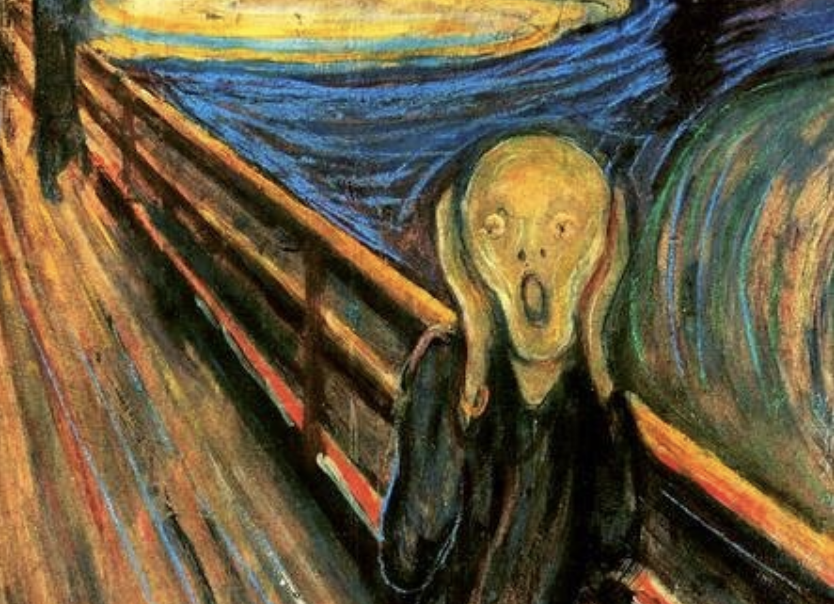Feel the fear and play it anyway

I love all of my students. I am so proud of them and I am so happy that I have been able to help them on the joyous journey of musical self expression. Everyone grows together, we have times of fun and laughter, of exploration and celebration and of inexorable beauty when making music together surpasses anything words can say.
And then I go and ruin it all by saying something stupid like “end of year concert”. Actually I try and disguise the trauma by calling it our “end of year piano party”. How cruel am I, leading my beloved players to the piano like lambs to the slaughter. Because it’s rarely a pleasant experience where people say “I played that so much better than I normally play it at home”. Au contraire. I know the blows. That delicious little extra trill at the end of the fourth bar that you had practised to perfection - you forget it. That hilarious introduction that was meant to bring the house down before you even started - you muddle it up and it falls flat. Playing with all the sensitive technique and expression that we have been nurturing all year - your hands shake so much you can barely get the notes out, let alone play them with mindfulness of how you’re making each hammer hit its strings. You think you have chosen “your safe piece”, but something goes different and you still completely stuff it up. Oops, left the second verse out. Back to the start, but now the lyrics don’t make sense. Why is your voice sounding shrill? And why is your heart still pounding 5 minutes after you sit back down?
Welcome to the world: you’re normal. You are a feeling, fearing, fallible, fantastically fine person and actually the only thing that is against you is the hope that it would be different. It will be different one day, when you have played for others so many times your body has decided it’s okay. Or when you have found a piece that has so much become part of you that you can’t play it wrong anymore. Or when you have stopped caring how it comes out. How do you get there? You keep going! Here are some tips to make that moment sooner:
Visualise yourself playing successfully beforehand, for instance while you’re laying in bed the week before. Scan your body in your mind’s eye. Relax your heart, consider what you say and where your hands start off, infuse your imaginary performance with ease, pleasure and acceptance.
Play your piece so often that there is no more thinking involved. It’s like your hands know it, even when your mind goes blank.
Iron out any “trouble spots”. Try go through it imposing different stressors; when you’re tired, for a friend, for a video for Anneka, while the radio is on... On the day itself, when you’re nearly up, keep taking slow deep breaths. Relax your heart, connect with your joy and your sense of humour. Look at the piano keyboard and try and remember where your hands start off and what your first few notes are.
When you sit down take a moment to ground and relax your body. Breathe, connect with the piano, think of where you’re starting, take your time. You may even want to play a few chords to get the feel of the piano. Remember: THE PIANO IS YOUR FRIEND. You may want to also connect with your audience and say something that you have prepared beforehand. Some people like to imagine the audience is sitting there in their underwear. I remember Luke starting his performance with the words “nice jocks Tony”. Try and remember to play slower than you would tend to. I have lots of old performance pieces that have the word “SLOW” scribbled on top. If things go wrong early on in your piece: laugh and start again. If things go wrong a bit into it: try and keep playing. Make it up. See if your hands can get back to where they remember things again. If you lose it, tell your audience you’re going to start again from a section you know. Remember; it’s normal, it’s funny and it’s a gift to every one else, because it gives them permission to stuff up too. I have such a fond memory of Christine who was nearing the end of Ballade and lost it with a guffaw “Oh, and I was going so well”. If you’re far enough into the piece, you can always try to keep a straight face and play your “home chord “ with a flourish. MOST PEOPLE DON’T HEAR YOUR MISTAKES AND WON’T EVEN REALISE.
Most importantly, be kind to yourself afterwards. Compliment yourself on the guts you had to get up and do it, or on something that went well. “I made it to the end” or “the first four bars went well”, or “I didn’t speed up” or “my hair looked good”. Laugh at anything that went wrong. It’s normal. Enjoy your fellow PianoEasy players, who will say kind things about your playing to you. You are now one performance closer to the first one that you’ll be happy about.

2 comments
Great words of wisdom from a true professional. Thanks for the advice.
Thank you Anneka! I’m terrified!! 😂😂
Leave a comment
Please log in or register to post a comment